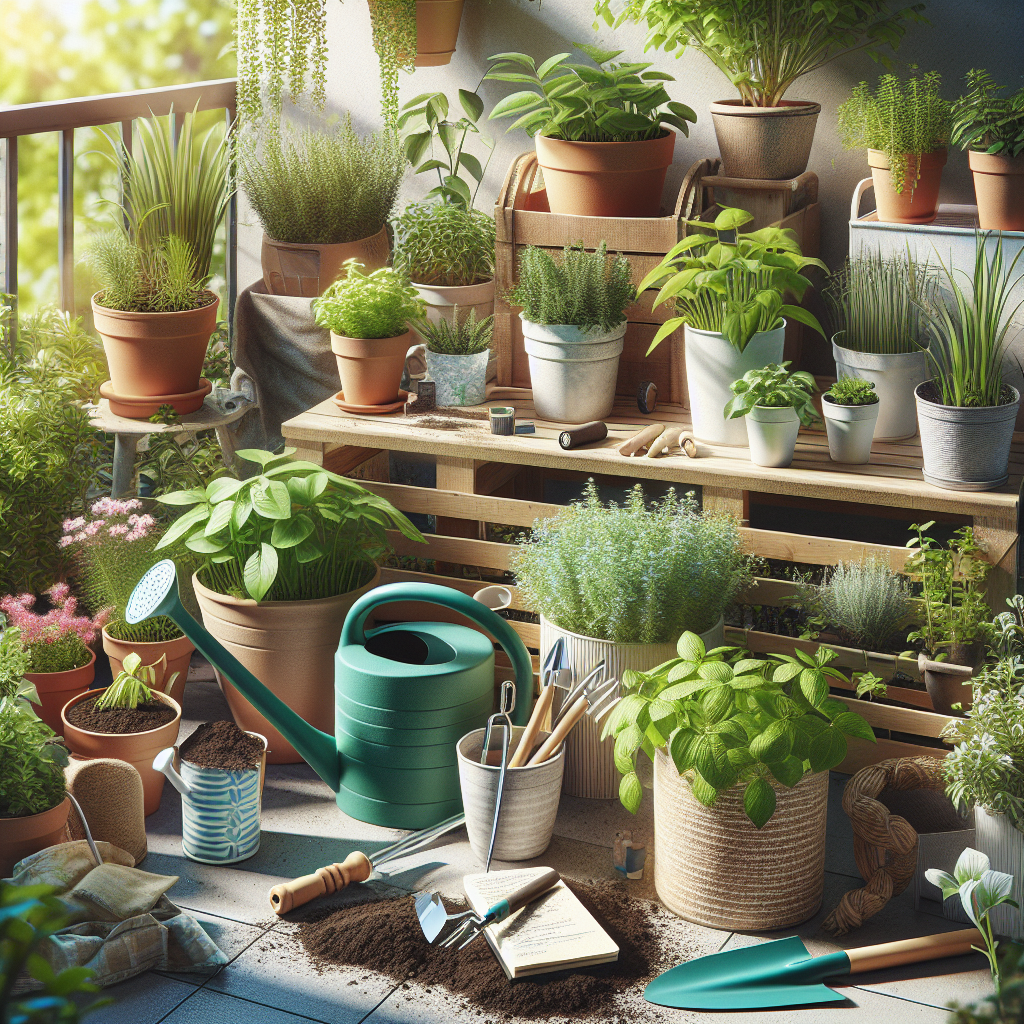Container gardening is a popular and convenient way to grow plants in small spaces, on balconies, patios, or even indoors. Whether you’re a seasoned gardener or just starting out, there are several tips you can follow to ensure successful container gardening.
1. Choose the Right Containers: When selecting containers for your plants, it’s important to consider the size and type of plant you’ll be growing. Larger plants will require larger pots with good drainage holes to prevent water from pooling at the bottom. Additionally, clay pots are ideal for plants that require good drainage, while plastic pots retain moisture better for plants that prefer more consistent moisture levels.
2. Use Quality Potting Soil: The soil you use in your containers plays a crucial role in the growth and health of your plants. It’s important to use a high-quality potting mix specifically designed for container gardening, as regular garden soil may contain pests or diseases that can harm your plants. Look for potting mixes that contain perlite or vermiculite to improve drainage and aeration.
3. Provide Adequate Drainage: Proper drainage is essential for successful container gardening as it prevents waterlogging and root rot. Make sure your pots have drainage holes at the bottom and use saucers to catch excess water that drains out. Elevating the pots on bricks or stones can also help improve drainage and prevent water from accumulating around the roots.
4. Choose the Right Plants: Not all plants are well-suited for container gardening, so it’s important to choose ones that thrive in small spaces and confined root systems. Herbs like basil, mint, and parsley are great options for beginners, while flowering plants like petunias, geraniums, and marigolds add color and beauty to your containers.
5. Water Carefully: Container gardens require more frequent watering than traditional gardens because they dry out faster due to exposure to sunlight and wind. Check the soil moisture regularly by sticking your finger into the soil; if it feels dry 1-2 inches below the surface, it’s time to water. Water slowly and deeply until you see excess water draining out of the bottom of the pot.
6. Provide Adequate Sunlight: Most container plants require at least 6-8 hours of sunlight per day to thrive. Place your containers in a sunny spot where they receive direct sunlight during the morning or late afternoon hours while being protected from intense midday sun that can scorch delicate leaves.
7. Fertilize Regularly: Container plants rely on you for nutrients as they quickly deplete their food supply in limited soil space. Feed your plants with a balanced liquid fertilizer every 2-4 weeks during the growing season to ensure they have access to essential nutrients for healthy growth and abundant blooms.
8. Prune and Deadhead: Regular pruning and deadheading help keep your container garden looking neat and encourage new growth and flowering throughout the season. Remove dead or yellowing leaves, spent flowers, or leggy stems to promote healthy growth and prevent pest infestations.
9. Monitor Pests and Diseases: Container gardens are more susceptible to pests like aphids, spider mites, or snails due to their confined space and lack of natural predators compared to traditional gardens.
Inspect your plants regularly for signs of pest damage or disease such as yellowing leaves, distorted growth or sticky residue on leaves.
Treat infestations promptly using organic methods such as hand-picking pests off your plants (if feasible), spraying them with insecticidal soap or neem oil.
10.Protect Your Plants from Extremes:
Extreme temperatures can stress container-grown plants leading them wilted leaves scorched blooms.
During hot summer days move containers into shade midday provide extra watering if necessary.
In winter months move them indoors protect from frost freezing temperatures by placing near windows under grow lights using frost cloth shelter.
By following these tips for successful container gardening you’ll be able grow beautiful healthy crops all year round even small spaces without yard access.
Remember experiment try different plant combinations techniques until find what works best giv yourself grace learn mistakes happy growing!













